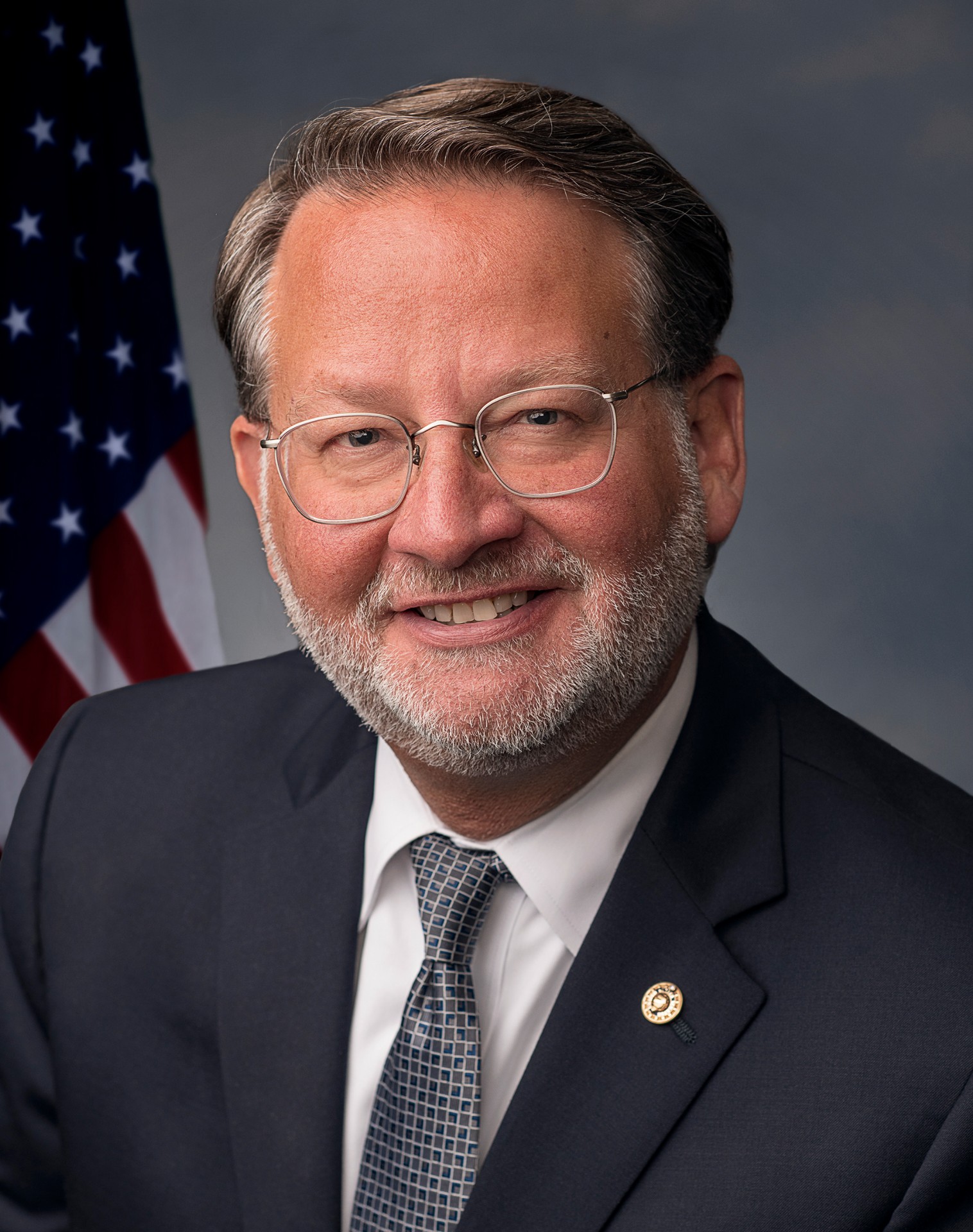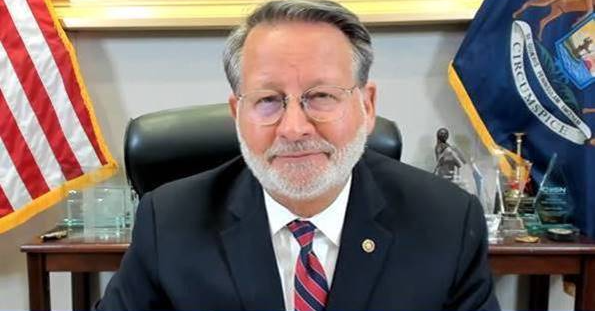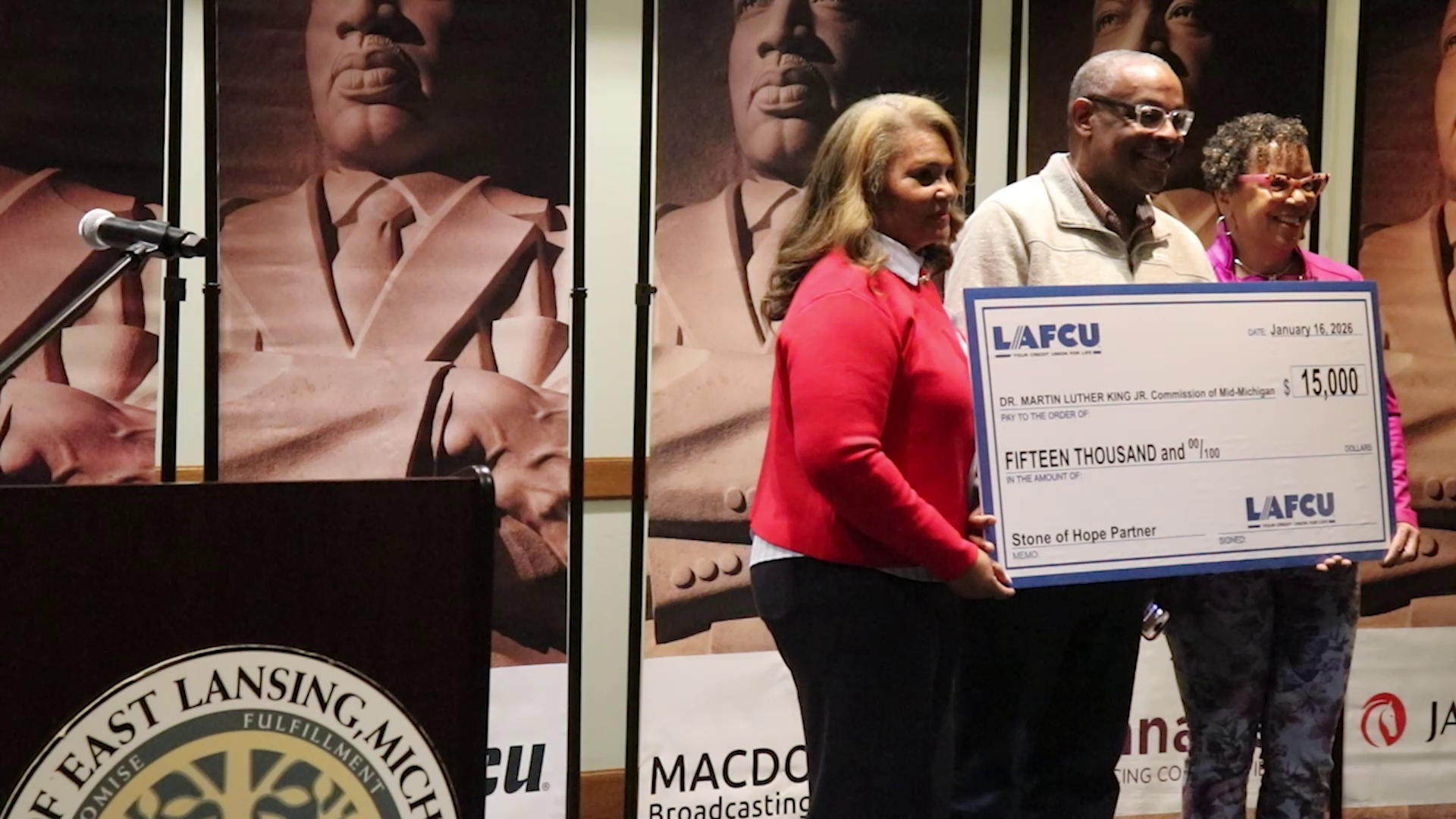
WASHINGTON, DC – U.S. Senator Gary Peters (MI) helped the Senate Appropriations Committee pass the Fiscal Year 2026 Transportation, Housing, Urban Development, and Related Agencies Appropriations Act. The bipartisan legislation would provide funding for Michigan priorities, high-impact local projects, and federal programs that support key transportation, workforce, and housing initiatives. The legislation would also help bolster auto safety and innovation, as well as safe, reliable air service in Michigan and across the country. The bill now advances to the full Senate.
“This legislation delivers on key priorities for Michigan and our entire country,” said Senator Peters, a member of the Appropriations Committee and Ranking Member of the Commerce Subcommittee on Surface Transportation, Freight, Pipelines, and Safety. “It will allow our communities to improve their infrastructure, design safer transit systems, expand job training opportunities, and build more affordable housing. Every day, I hear from constituents who want to see these commonsense investments in our communities, and this bipartisan bill creates strong opportunities to make it happen.”
“I was also proud to write provisions in the bill to make sure airports can replace their outdated air traffic control towers, and to prevent the Administration from cutting funding for rural airports. These airports are essential to Michigan’s economy and there’s no question that our air travel industry is in desperate need of investment. These provisions will help ensure U.S. air travel is safe and reliable,” Peters continued.
The bill includes numerous measures led and supported by Peters, including:
Strengthening Michigan Air Service & Airport Safety
New Funding for Air Traffic Control Towers: In the wake of the tragic Washington, DC plane crash in January 2025, Peters authored and secured an amendment in the bill to provide $107 million to replace old and unsafe air traffic control towers at individual airports. More than one of Michigan’s commercial airports have air traffic control towers that are over 60 years old. Without Peters’ amendment, the bill would not include dedicated funding for individual airport tower replacements. This funding will help continue to address our air traffic control modernization backlog while ensuring a safer and more efficient experience for customers.
Defending Essential Air Service from Administration Cuts: The bill protects full funding for the Essential Air Service (EAS) program, which helps small and rural communities remain connected to the National Airspace System. The bill also includes a new provision authored by Peters that prevents the Administration from cutting, renegotiating, or otherwise altering an existing EAS airport contract unless it is requested by the community it serves. This provision helps defend Michigan communities from being targeted by the Trump Administration’s promise to cut $308 million from the EAS program. Michigan has nine communities eligible for the Essential Air Service program: Alpena, Escanaba, Hancock/Houghton, Iron Mountain/Kingsford, Ironwood, Manistee/Ludington, Muskegon, Pellston, and Sault Ste. Marie.
Supporting Expansion at Gerald R. Ford International Airport: Peters secured $800,000 for upgrades to the Gerald R. Ford International Airport in Grand Rapids. This funding would be used to install the second of two baggage claim devices to expand existing capacity and prepare for the airport’s expansion of international flights.
Modernizing Operations at Chippewa County International Airport: Peters secured $750,000 in the bill for the Chippewa County International Airport in Kincheloe. This funding will be used to modernize a post-Air Force base fire station.
Upgrading Michigan’s Transportation & Shipping Infrastructure
Rebuilding the Saginaw Road Bridge: Peters successfully secured $955,000 to replace the Saginaw Road Bridge which was severely damaged by flooding in 2020. The bridge is the primary east-west route over the Tittabawassee River connecting the cities of Midland, Coleman, and Clare.
Reconstruction of Mound Road from 8 Mile to I-696: Peters secured $750,000 to support the second phase of the Mound Road reconstruction project, which is improving a corridor in Warren, Michigan that serves critical defense and manufacturing entities.
Upgrading Detroit Public Transit: Peters secured $3,000,000 for the City of Detroit to fund the early phases of developing of a new intermodal bus and rail passenger facility at Michigan Central Station in Detroit. Peters also secured an additional $2.6 million to extend and build new dedicated transit lanes on Woodward Avenue to expand public transportation along the corridor. This funding will help upgrade the city’s crucial public transit systems and improve transit time for Detroit residents.
Improving Efficiency at Port of Monroe: Peters secured $3.6 million for infrastructure improvements at the Port of Monroe that would enhance the port’s export capacity, improve logistics efficiency, and strengthen shipping in the Great Lakes region.
Bolstering Automotive Innovation and Improving Roadway Safety
Supporting Bus Safety in Grand Rapids: Peters secured $750,000 for Grand Rapids to equip public transit buses with collision avoidance and pedestrian alert technology that will improve transit safety in the community.
Funding to Accelerate Safe and Transparent Deployment of Automated Driving Systems: Peters secured $13.9 million for the National Highway Traffic Safety Administration’s (NHTSA) Office of Automation Safety to expedite safe development of automated driving systems by setting safety standards, evaluating exemption petitions, and overseeing safety demonstrations.
Improving Transparency of Vehicle Safety Technology Performance: Peters secured $3.5 million for NHTSA’s Partnership for Analytics Research in Traffic Safety (PARTS) Program. The program focuses on collaboration between automakers and federal agencies to share data on, and improve the performance of, advanced driver assistance systems. Peters also secured a provision in the bill that directs NHTSA to submit a report to Congress with data on highway safety and the effectiveness of regulations to improve safety on our roadways.
Establishing a Motorcycle Advisory Council: Peters secured a provision in the bill directing NHTSA to report to Congress within 180 days on the status of the Motorcycle Advisory Council. Peters’ Motorcycle Advisory Council Act passed as part of the Infrastructure Investment and Jobs Act, requiring the Department of Transportation to form an Advisory Council where motorcyclists would advise the Department on a range of issues, including motorcycle and motorcyclist safety. Peters is an avid motorcycle rider. He helped found and currently co-chairs the bipartisan Senate Motorcycle Caucus.
Improving Vehicle Recall Outreach to Protect Driver and Roadway Safety: Data indicates that as many as 1 in 5 cars on the road have an open recall. Peters secured language requiring NHTSA to improve and expand its recall outreach to states, including by expanding the reach of the State Process for Informing Consumers of Recalls grant program. The bill also include language to better utilize Over the Air (OTA) updates to increase recall repair rates.
Deploying Electric Vehicle Charging Infrastructure: The bill includes language requiring the Federal Highway Administration to issue new guidance for its National Electric Vehicle Infrastructure Formula Program (NEVI), which will help ensure states can access the funding needed to strategically deploy electric vehicle (EV) chargers. Peters fought to secure this provision following efforts by the Trump Administration to eliminate NEVI, which is critical for building an interconnected charging network across the United States. This provision will help support Michigan’s autoworkers as they build the cars of the future.
Reducing Deaths and Serious Roadway Injuries: The bill directs the Department of Transportation to incentivize and accelerate the deployment of cellular vehicle-to-everything (C–V2X) technologies, which connect vehicles to other vehicles as well as the infrastructure around them. This technology enables school bus safety and collision avoidance, while improving emergency responder response times and pedestrian, bicyclist, and motorcyclist safety.
Increasing Transportation Options for Michiganders
Keeping Pedestrians Safe: Peters secured $1,000,000 for the construction of the Red Run Park Bridge in Sterling Heights, Michigan. The funding will construct a non-motorized bridge connecting the Baumgartner Sports Complex to the planned Red Run Park in Sterling Heights, providing safe, non-motorized access to recreational space and to a nearby Smart Bus transit route for commuters.
Improving the Ypsilanti Transit Center: Peters secured $750,000 to support the reconstruction of the Ypsilanti Transit Center to improve safety and security features.
Funding for Michigan Central Station and Passenger Rail: Peters secured $3,000,000 for the development of an intermodal train and bus station at the newly renovated Michigan Central Station in Detroit. This funding comes as part of Peters’ advocacy to restore passenger train service to the station in Detroit, and eventually across the U.S.-Canadian border into Windsor. Peters also supported provisions that maintained funding for Intercity Passenger Rail and increased funding available for upgrades to Amtrak’s National Network, including in Michigan.
Expanding Affordable Housing for Michigan Residents
Building Affordable Housing Units in Southfield: Peters secured $1.2 million to support the City of Southfield’s Garner Street Housing Development, which will add units of single and multi-family housing for low- to moderate-income city residents.
Supporting Affordable Housing for Seniors in Detroit: Peters secured $500,000 for the City of Detroit to support construction of the Archdale Senior Affordable Housing Project.
Revitalizing Lewis Street Corridor in Flint: Peters secured $2,000,000 for development of the Flint Eastside Market and Residential Units Project. This funding would be used to develop multiple affordable housing units as well as commercial space for small businesses and entrepreneurs in the Lewis Street corridor of Flint.
Modernizing Berston Field House: The bill includes over $6.3 million in funding secured by Peters to support the ongoing Berston Field House Expansion and Renovation Project. The funding will help renovate the 100-year-old historic site and build a new state-of-the-art recreation and community center to expand services, amenities, programming, and opportunities to serve more people.
Expanding Funding for Homeless Assistance Grants: Peters fought for and successfully secured $4.5 billion in Homeless Assistance Grants (HAG). These grants provide funding for Continuums of Care, which are local planning bodies that coordinate housing and services to help families and individuals experiencing homelessness.
Improving Response to the Homelessness Crisis: The bill includes language requiring the Department of Housing and Urban Development (HUD) to examine options for improving the accuracy of its annual Point-in-Time (PIT) count, which determines the total number of individuals experiencing homelessness in the United States. Currently, the PIT count is conducted during winter months, when cold weather states like Michigan often see its lowest population of individuals experiencing homelessness. This provision will ensure that HUD explores changes to its system that will more accurately reflect homelessness experienced in each state over the course of the entire year to help improve access to the resources needed to effectively address homelessness.
Supporting Substance Use Recovery for Tribal Members: Peters secured $574,000 for the Grand Traverse Band of Ottawa and Chippewa Indians. The funding would be used for planning and design of a long-term housing facility to support substance abuse recovery for Tribal members. The facility would provide persons recovering from substance abuse and related issues with stable housing to facilitate long-term recovery.
Supporting Efforts to Protect Michigan’s Vital Ecosystems and Clean Up PFOS Contamination
Supporting PFOS Contamination Cleanup in Bay City: Peters secured $959,000 for Bay City’s PFOS contamination cleanup efforts. This funding would support the excavation and demolition of the city’s existing fire station, where PFOS contamination was detected.
Replacing Ecorse Creek Bridge and Culvert: Peters secured $2.5 million for the Downriver Community Conference to support the Ecorse Creek ecosystem restoration project. This funding would help remove and replace bridges and culverts that contribute to flooding in the area to alleviate flooding in the North Branch Ecorse Creek watershed.
Expanding Opportunities for Job Training, Workforce Development Initiatives
Promoting Aviation Careers for Women: The bill includes language that supports reauthorization of the Bessie Coleman Women in Aviation Advisory Committee, which was created to help recruit and retain women in careers that are key to the safety of our aviation system. Currently, less than 12 percent of aerospace engineers, less than 10 percent of licensed pilots, and less than 3 percent of maintenance technicians are women. These fields are also experiencing a critical workforce shortage, driven in part by this gender gap. This provision builds on Peters’ Promoting Women in Aviation Act, bipartisan legislation passed into law that made permanent the Women in Aviation Advisory Committee.
Expanding Access to Maritime Workforce Training: Peters secured $4.8 million for the Maritime Administration’s Student Incentive Payment (SIP) Program, which helps cadets offset the cost of tuition, uniforms, books, and living costs. Last year, Peters’ CADETS Act was signed into law, which expands the eligibility age for the SIP Program to include any qualified student who will meet the age requirements for enlistment in the U.S. Navy Reserve at their time of graduation, and ensures that high-performing, non-traditional cadets can receive this funding.
Upgrading Albion STEM Center: Peters helped secure $500,000 in the bill to support necessary structural and mechanical repairs at the City of Albion’s Learning STEM Center, which will improve the safety and accessibility of the facility.
Keeping Agencies Staffed to Support Public Safety:
Adequately Staffing Department of Transportation: The bill includes language raising concerns over decreased staffing levels at the Department of Transportation (DOT) due to the deferred resignation program. Specifically, the provision directs the Secretary of Transportation to ensure each DOT office is at the staffing level supported by funding levels provided by the committee.









